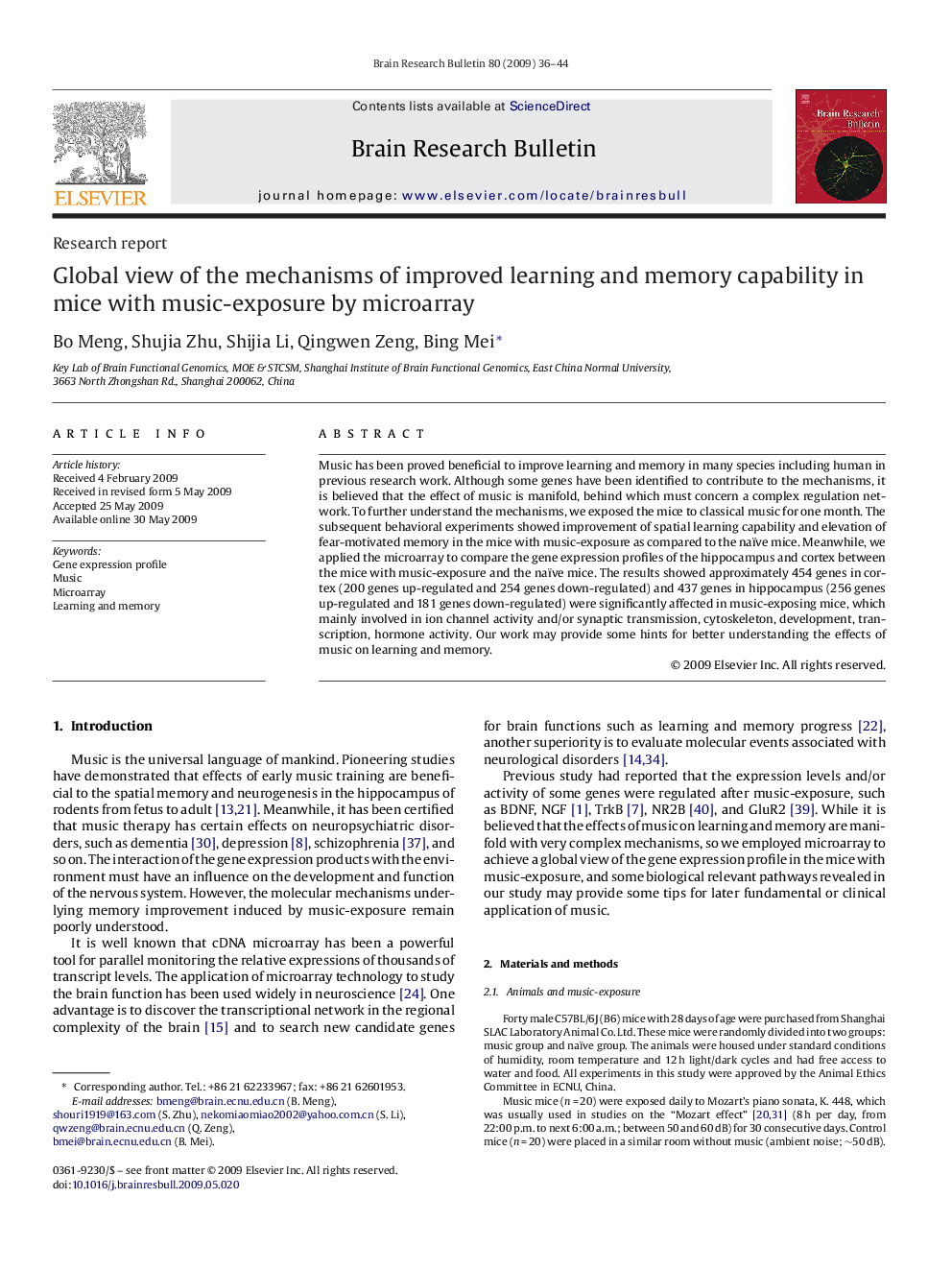| Article ID | Journal | Published Year | Pages | File Type |
|---|---|---|---|---|
| 4319512 | Brain Research Bulletin | 2009 | 9 Pages |
Music has been proved beneficial to improve learning and memory in many species including human in previous research work. Although some genes have been identified to contribute to the mechanisms, it is believed that the effect of music is manifold, behind which must concern a complex regulation network. To further understand the mechanisms, we exposed the mice to classical music for one month. The subsequent behavioral experiments showed improvement of spatial learning capability and elevation of fear-motivated memory in the mice with music-exposure as compared to the naïve mice. Meanwhile, we applied the microarray to compare the gene expression profiles of the hippocampus and cortex between the mice with music-exposure and the naïve mice. The results showed approximately 454 genes in cortex (200 genes up-regulated and 254 genes down-regulated) and 437 genes in hippocampus (256 genes up-regulated and 181 genes down-regulated) were significantly affected in music-exposing mice, which mainly involved in ion channel activity and/or synaptic transmission, cytoskeleton, development, transcription, hormone activity. Our work may provide some hints for better understanding the effects of music on learning and memory.
